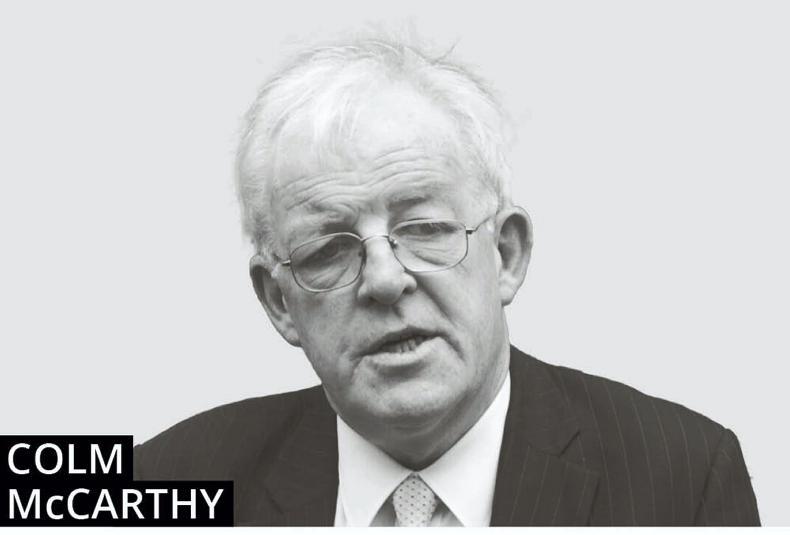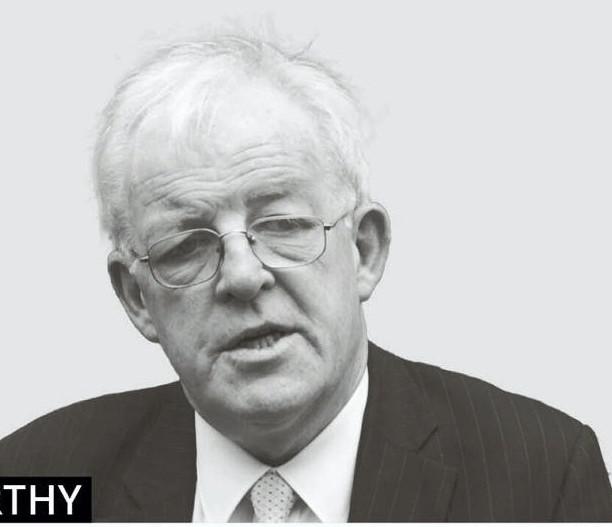Michael McGrath’s first budget on 10 October could be the last from the coalition Government of Fianna Fáil, Fine Gael and the Green Party.
A general election must be held no later than March 2025 and could well be scheduled for the autumn of next year, which would mean that the budget for 2025 would be the first for whatever Government emerges.
The temptations facing Minister McGrath in framing Budget 2024 are obvious: use the recent surge in corporation tax revenues to fund give-aways on tax and public spending, while including the word ‘prudence’ in every ministerial statement.
For the next month, the traditional rites of the budget ritual will be observed, with kites flown in support of assorted give-away measures accompanied by official denials that any decisions have yet to taken.
Whatever tax concessions or spending increases are announced will be decried as inadequate by opposition politicians and by advocacy groups since the budget projections will still show a surplus, albeit diminished, for 2024.
Bonanza
In this sense, the unexpected bonanza in tax revenue these last few years, dominated by corporation tax receipts, is a political headache for any Government conscious of the overhang of sovereign debt, the legacy of the banking bust and its aftermath coupled with the one-off exchequer costs of the response to COVID-19.
During the period from 2008, when the bubble burst, up to the exit from the troika programme of emergency lending to Ireland from the IMF and European Union in 2014, finance ministers could resist the budget-time pressures by arguing that the cupboard was bare, as clearly it was.
Only a handful of European countries have ended up unable to finance themselves in modern times and Ireland was one of them.
In the summer of 2010 the Government was unable to sell Government debt even at high interest rates and had to turn to the IMF and the European institutions, the so-called troika.
The budget came back into balance through a combination of tax increases and expenditure containment, and has now gone into surplus despite the recent looser budgets: some of the corporation tax bonanza has already been spent.
Surplus
Nonetheless, a surplus has emerged, and there is a public perception of idle money lying around in the Department of Finance and insistent demands for generosity.
But the level of outstanding sovereign debt remains a challenge, as it does for most eurozone members, even though the absolute number for Ireland has been reduced.
Another squall in the eurozone sovereign debt market is possible, and a future Government could have to face the music, especially if the corporation tax boom turns out to be transitory.
The collapse of the public finances from 2008 onwards was turbocharged by the banking bust, but also by a sharp fall in boom-time tax revenue from stamp duties.
The household sector was heavily over-borrowed and the banks fragile.
Irish banks (those that survived) are now better capitalised and better supervised, and the collective balance sheet of the private sector (households and business, including farmers) is stronger than appeared likely on exit from the austerity period.
There has been a net improvement in their balance sheet position, including a sharp rise in bank deposits, usually attributed to the COVID-19 period lockdowns and the simple inability to spend. But there may also be a precautionary element: if the Government is over-stretched and too generous, a future tightening of budget policy is in prospect and the prudent household or business will take evasive action.
Offset
Believe it or not, this notion that the public can offset the expansionist policies of an imprudent Government is an old idea in economics, attributed to the classical economist David Ricardo who died 200 years ago last Monday.
Ricardo was English but a member of parliament for Portarlington, where he purchased a seat as was the practice in those days.
Ricardo was one of the great economists of the early 19th century, a successor to Adam Smith and would have won the Nobel Prize for economics had such an award existed at the time.
He developed the theory of comparative advantage, the intellectual basis for free trade and he opposed tariff protection and the Corn Laws.
He also felt that policies of Government can be diluted by the responses of the public, taxpayers in particular, who may decide to organise their personal Rainy Day fund should the Government neglect to do so.
This is called Ricardian Equivalence to this day and has been cited regularly by economists in recent years to explain the phenomenon, evident in the Irish data and in some other countries, of stronger private balance sheets alongside high Government exposure.
There may be multiple forces at work, but perhaps the prudent households of the midlands hear the echoes of their former member of parliament.









SHARING OPTIONS